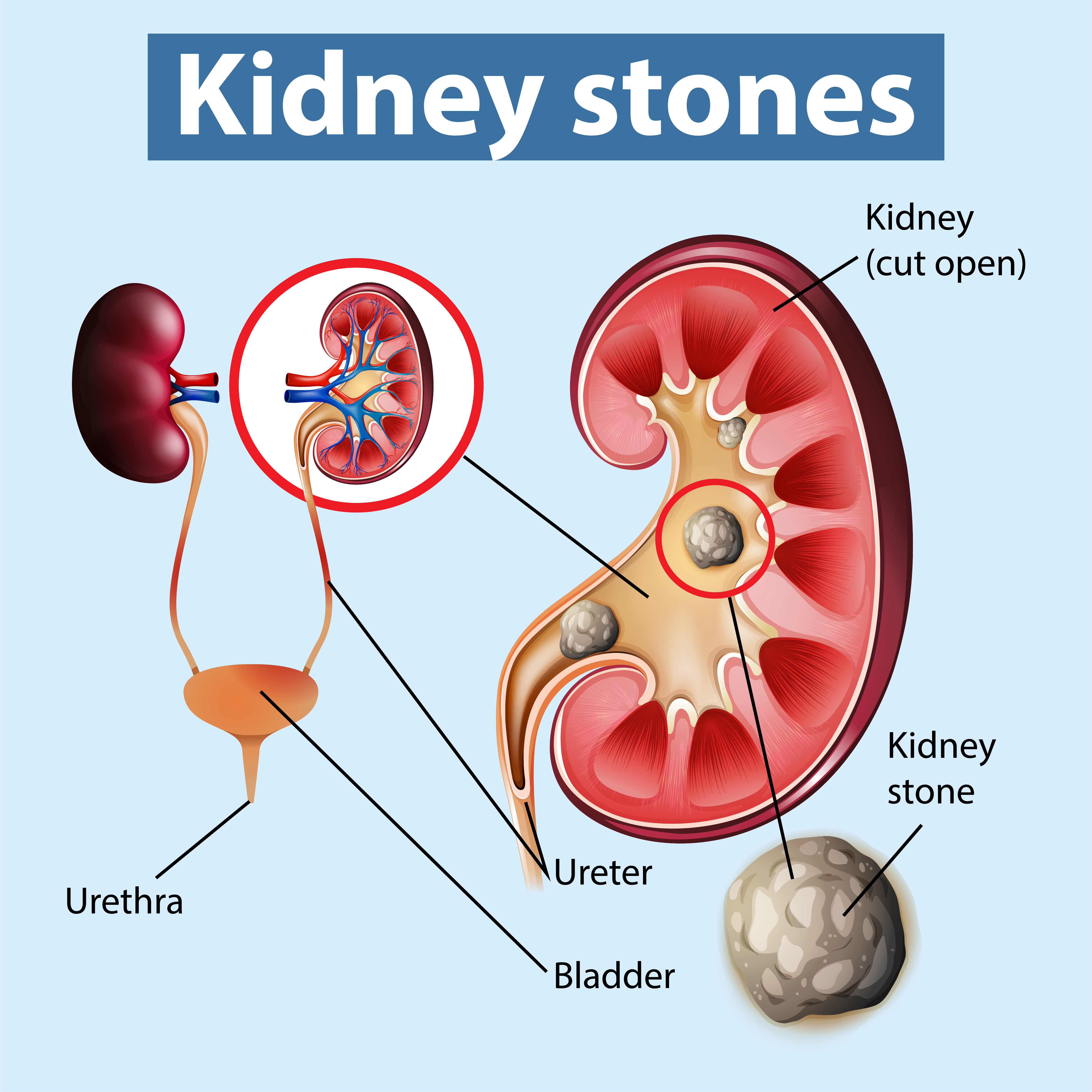Renal Stone

Understanding Renal Stones: A Homeopathic Approach to Alleviate Discomfort
Renal stones are solid masses formed from substances in the urine, such as calcium, oxalate, uric acid, and cystine. These substances can crystallize and build up over time, eventually creating small stones that can range in size from a grain of sand to a pebble. When these stones get stuck in the urinary tract, they can obstruct the flow of urine, leading to intense pain and discomfort.
Renal stones, also known as kidney stones, are a common health concern affecting millions of people worldwide. These small, hard mineral deposits can form in the kidneys, causing immense discomfort and pain. While modern medicine offers various treatment options, homeopathy provides a gentle, natural approach that can complement conventional treatments or even serve as a primary mode of relief. In this blog, we will delve into the world of renal stones, their causes, symptoms, and how homeopathy can offer solace and support.
What are Renal Stones?
Renal stones are solid masses formed from substances in the urine, such as calcium, oxalate, uric acid, and cystine. These substances can crystallize and build up over time, eventually creating small stones that can range in size from a grain of sand to a pebble. When these stones get stuck in the urinary tract, they can obstruct the flow of urine, leading to intense pain and discomfort.
Causes and Risk Factors
Several factors contribute to the formation of renal stones. Common causes include:
Recognizing the Symptoms
The symptoms of renal stones may vary depending on their size and location. Common signs include:
Homeopathic Approach to Alleviate Renal Stone Discomfort
Homeopathy, a holistic healing system, focuses on stimulating the body’s natural ability to heal itself. Homeopathic remedies are derived from natural substances and are selected based on the individual’s unique symptoms and constitution. Here are some commonly used homeopathic remedies for renal stones:
It’s essential to consult a Dr. Singh’s Homeopathy for a personalized prescription, as remedies are selected based on the specific symptoms and overall health of the individual.
Lifestyle Recommendations
Alongside homeopathic remedies, lifestyle modifications can significantly reduce the risk of recurrent kidney stones:
Conclusion
Renal stones can be painful and distressing, but with a combination of homeopathic remedies and healthy lifestyle choices, individuals can find relief and reduce the risk of recurrence. Homeopathy offers a safe and gentle alternative to conventional treatments, aiming to address the root cause of the problem rather than merely masking the symptoms. However, it’s crucial to work Dr. Singh’s Homeopathy for personalized care and guidance on the journey to kidney health and overall well-being.
Disclaimer:
This blog is for informational purposes only and does not constitute medical advice. The information provided is not a substitute for professional medical diagnosis or treatment. Always seek the advice of your physician or qualified healthcare provider with any questions you may have regarding a medical condition. Never disregard professional medical advice or delay seeking it because of something you have read in this blog.

